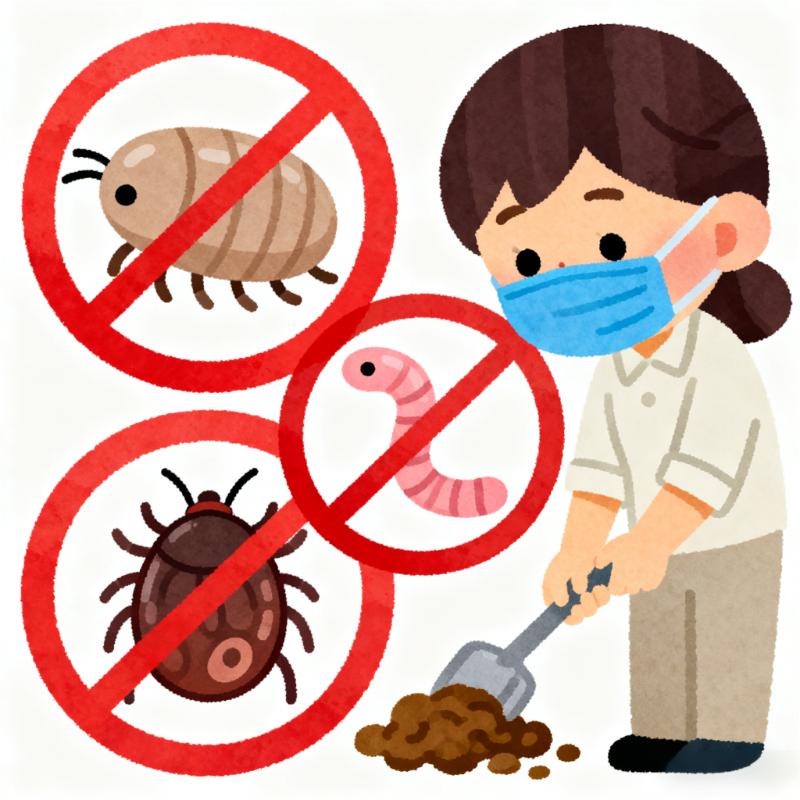“My pet never goes outside, so deworming isn’t necessary, right?” “External deworming alone is enough—where would internal parasites even come from?” These are common misconceptions among pet owners, rooted in a lack of awareness about the hidden threats parasites pose. What many fail to realize is that parasites lurk in unexpected places, and skipping or neglecting deworming can have severe consequences for both pets and their human families. In reality, “combined internal and external deworming + regular implementation” is not a marketing gimmick—it’s a critical health defense line that safeguards the well-being of your furry companions and your loved ones.

The Silent Danger of Parasites: Harm & Ubiquitous Transmission Routes
Parasites are far more harmful than most pet owners imagine, and their transmission pathways are everywhere—even indoors. Let’s break down the dual threats of external and internal parasites, and how they can infiltrate your pet’s life:
External Parasites: More Than Just Annoyances
Fleas and ticks are the most common external parasites, but their impact extends beyond itching and discomfort:
- Fleas: These tiny pests cause intense pruritus (itching), leading to skin inflammation, hair loss, and secondary bacterial infections (like hot spots). Worse, fleas carry tapeworm eggs—when your pet licks and grooms itself, it ingests these eggs, triggering internal tapeworm infestations. Tapeworms siphon nutrients from your pet, resulting in weight loss, vomiting, and a dull coat, even in well-fed animals.
- Ticks: Ticks are dangerous disease vectors. A single bite can transmit life-threatening illnesses like babesiosis (which causes anemia, jaundice, and kidney failure), ehrlichiosis (leading to fever, lethargy, and bleeding disorders), and even paralysis in severe cases. Ticks can attach to your pet’s skin for days, feeding on blood and multiplying, making early removal and prevention critical.
Internal Parasites: Hidden Killers
Internal parasites like roundworms, heartworms, and coccidia are equally devastating, often going undetected until symptoms worsen:
- Roundworms: These common intestinal parasites rob pets of essential nutrients, causing stunted growth in puppies and kittens, potbellies, and diarrhea. What’s more, roundworm eggs can be transmitted to humans via fecal contamination (e.g., accidental ingestion of soil or surfaces touched by infected pet waste), posing a risk to children and immunocompromised individuals.
- Heartworms: Transmitted through mosquito bites, heartworms live in a pet’s heart and lungs. Once infected, treatment is costly, invasive, and often ineffective—many pets don’t survive advanced stages. Even indoor pets aren’t safe: mosquitoes can slip through screens or open doors, carrying the parasite into your home.
- Coccidia & Giardia: These protozoan parasites cause severe diarrhea, dehydration, and weight loss, spreading through contaminated food, water, or contact with infected feces. Indoor pets can pick them up from eggs carried on their owner’s shoes, clothes, or even contaminated pet food bowls.

The Core Logic: Why Combined Internal & External Deworming Matters
Many pet owners mistakenly believe internal and external deworming can be done separately, but this ignores the interconnectedness of parasite transmission:
- External parasites fuel internal infections: As mentioned, fleas carry tapeworm eggs—eliminating fleas (external deworming) cuts off this tapeworm transmission route. Similarly, ticks weakened by external dewormers are less likely to attach and transmit diseases that compromise a pet’s immunity, making them more susceptible to internal parasites.
- Internal parasites weaken defenses: When a pet is burdened with internal parasites (like roundworms or heartworms), its immune system is compromised, making it easier for external parasites (fleas, ticks) to infest and cause harm. A healthy gut and strong immunity are key to resisting all types of parasites.
Furthermore, outdoor and indoor pets face different risks, and dogs and cats have unique susceptibilities:
- Outdoor pets: Need robust protection against ticks, fleas, and heartworms (mosquito-borne).
- Indoor pets: Must guard against roundworms, coccidia, and fleas (brought in by owners or other pets).
- Dogs: More prone to heartworms, ticks, and hookworms.
- Cats: Highly sensitive to mites (e.g., ear mites), tapeworms, and toxoplasmosis (a parasite that can affect pregnant humans).
Targeted combined deworming products—designed to cover both internal and external threats—simplify protection and ensure no gaps in defense.
Regular Deworming: A Long-Term Commitment, Not a One-Time Fix
Parasites have incredibly short reproductive cycles: fleas can complete a full life cycle (egg → larva → pupa → adult) in just 14 days, and roundworms lay thousands of eggs daily. A single deworming session is insufficient to provide lasting protection—regular, consistent treatment is essential:
- Puppies & Kittens: Weak immune systems and rapid growth make them highly vulnerable. Deworm internally and externally once a month until 6 months old.
- Adult Pets: Adjust frequency based on lifestyle: indoor-only pets need deworming every 3 months, while outdoor or high-risk pets (e.g., hunting dogs, cats that roam) require monthly treatment.
- Senior Pets: Age-related health issues mean deworming should be done under veterinary guidance to avoid drug irritation. Choose gentle, effective products tailored to their needs.
Break Free from Misconceptions: Protect Your Pet & Family
Don’t let myths like “indoor pets are safe” or “single deworming is enough” put your pet’s health at risk. Parasites don’t discriminate between indoor and outdoor pets, and their transmission routes are far more widespread than you think. To build a solid defense:
- Choose regular, high-quality deworming products (look for trusted brands with broad-spectrum coverage).
- Administer treatments standardized by your pet’s weight and age—under-dosing reduces efficacy, while over-dosing can cause toxicity.
- Keep a deworming calendar to track dates and avoid missed treatments.
- Combine deworming with good hygiene: clean pet bedding regularly, pick up feces promptly, and wash your hands after handling pets.

Pet deworming is not an optional expense—it’s a fundamental part of responsible pet ownership. By embracing “combined internal and external deworming + regular implementation,” you’re not just protecting your pet from pain, illness, and even death—you’re safeguarding the health of your entire family. Let go of the misconceptions, prioritize consistent deworming, and give your furry friend the long, healthy life they deserve.




